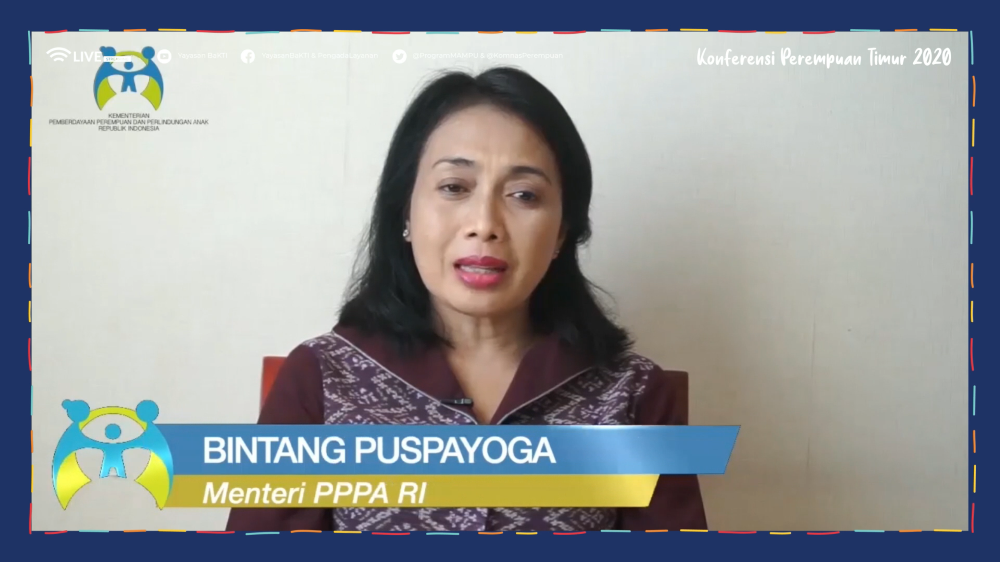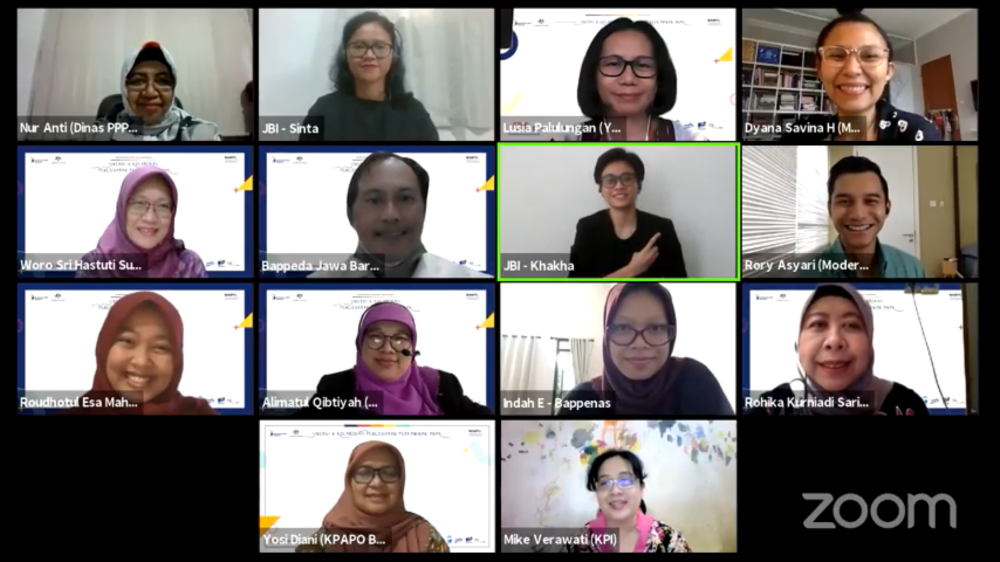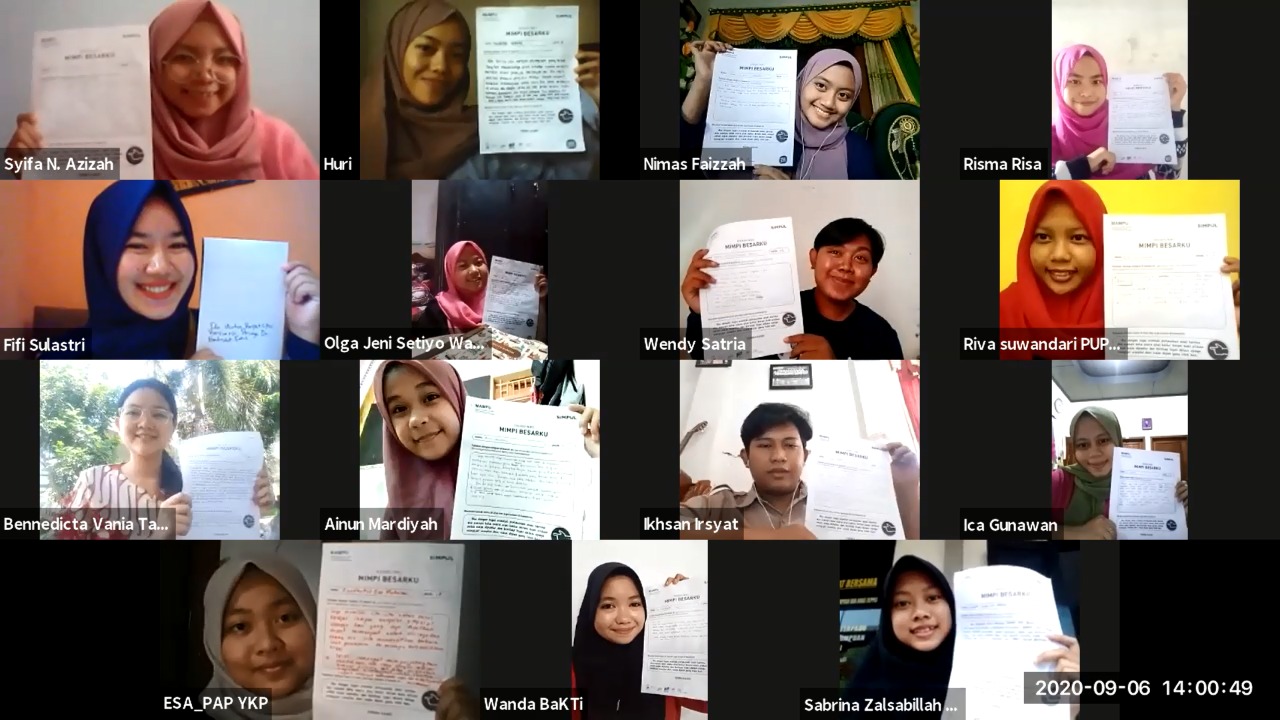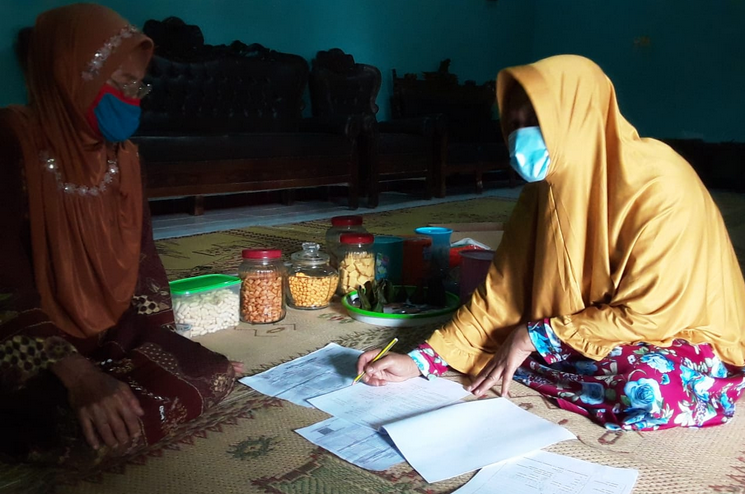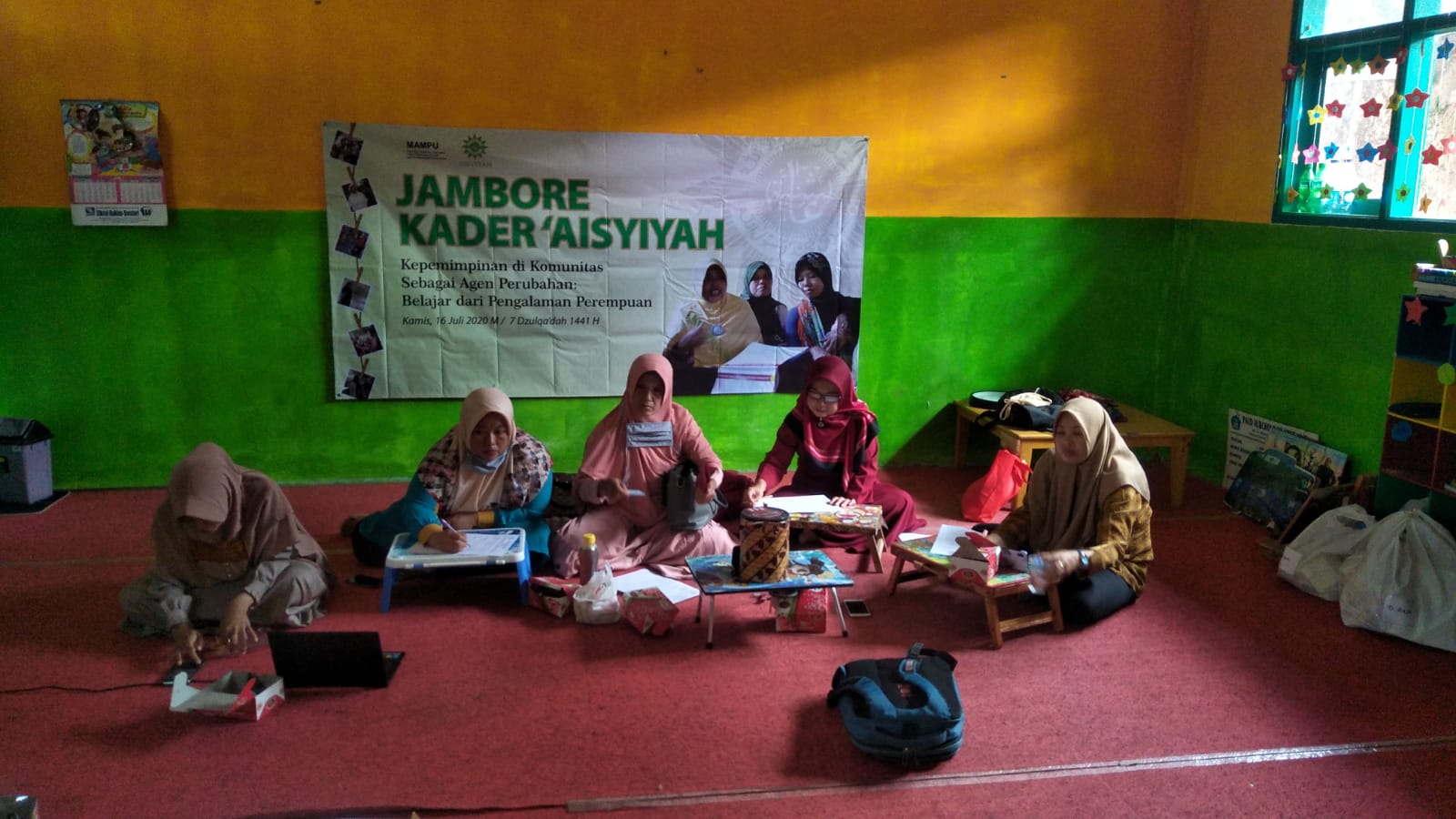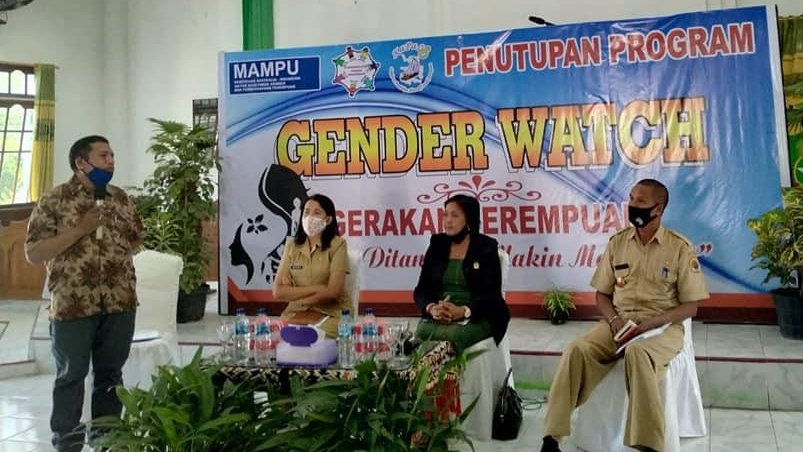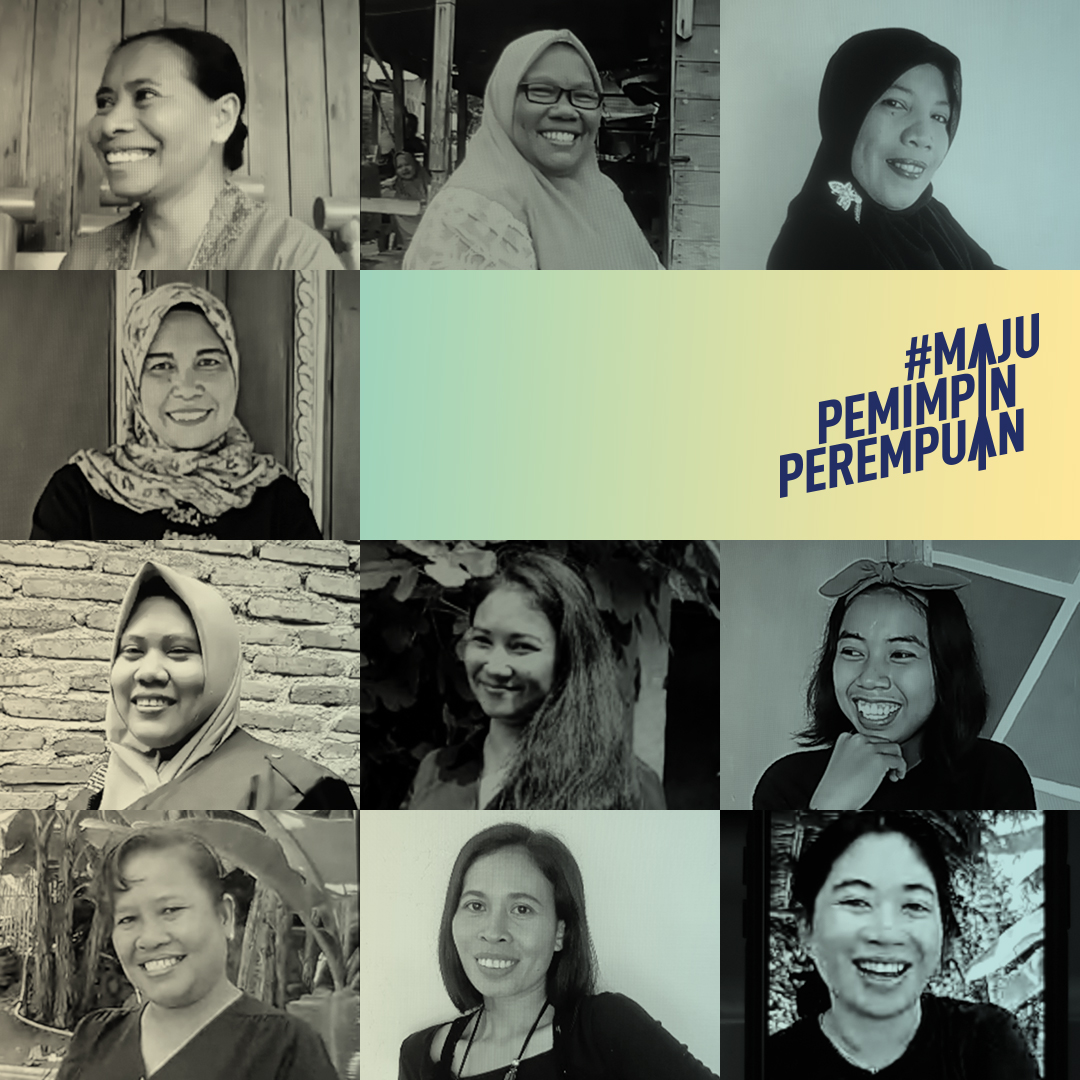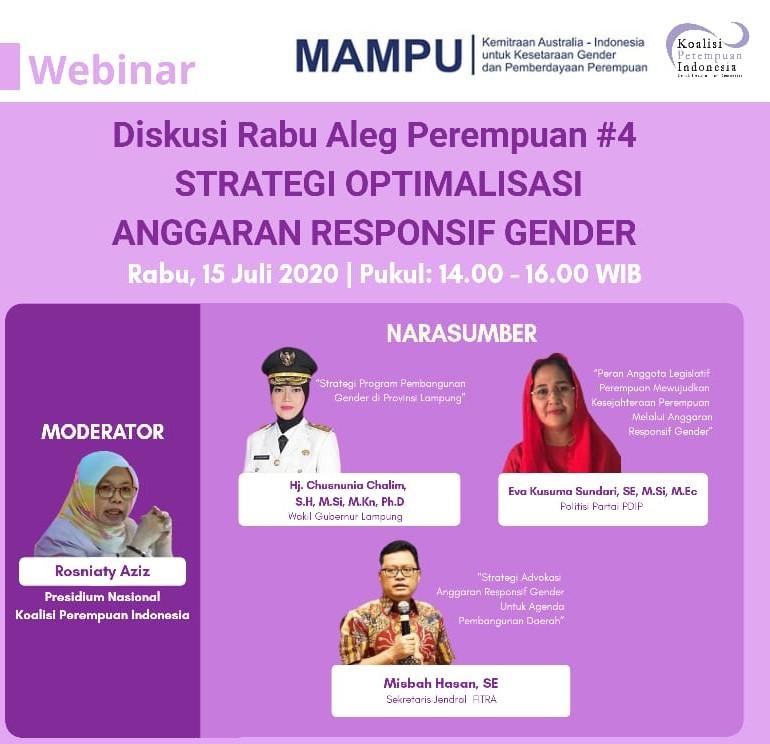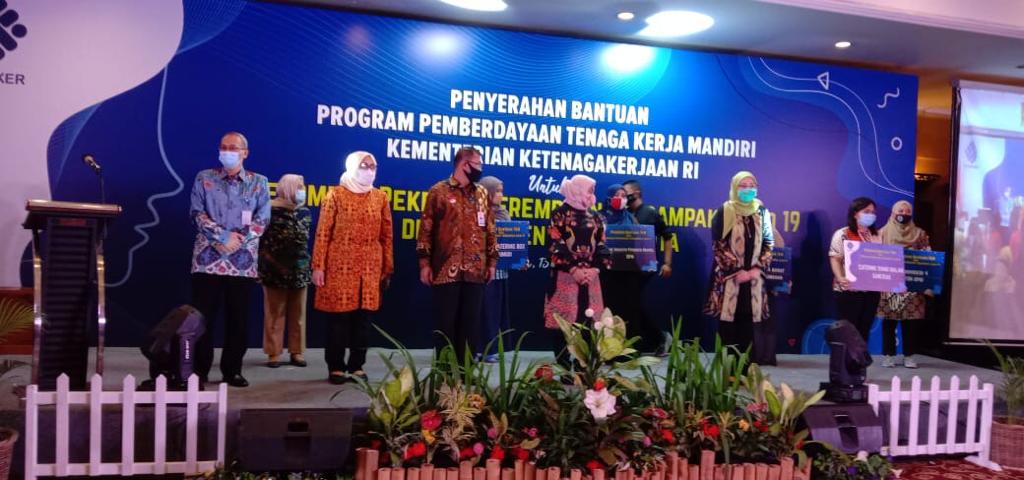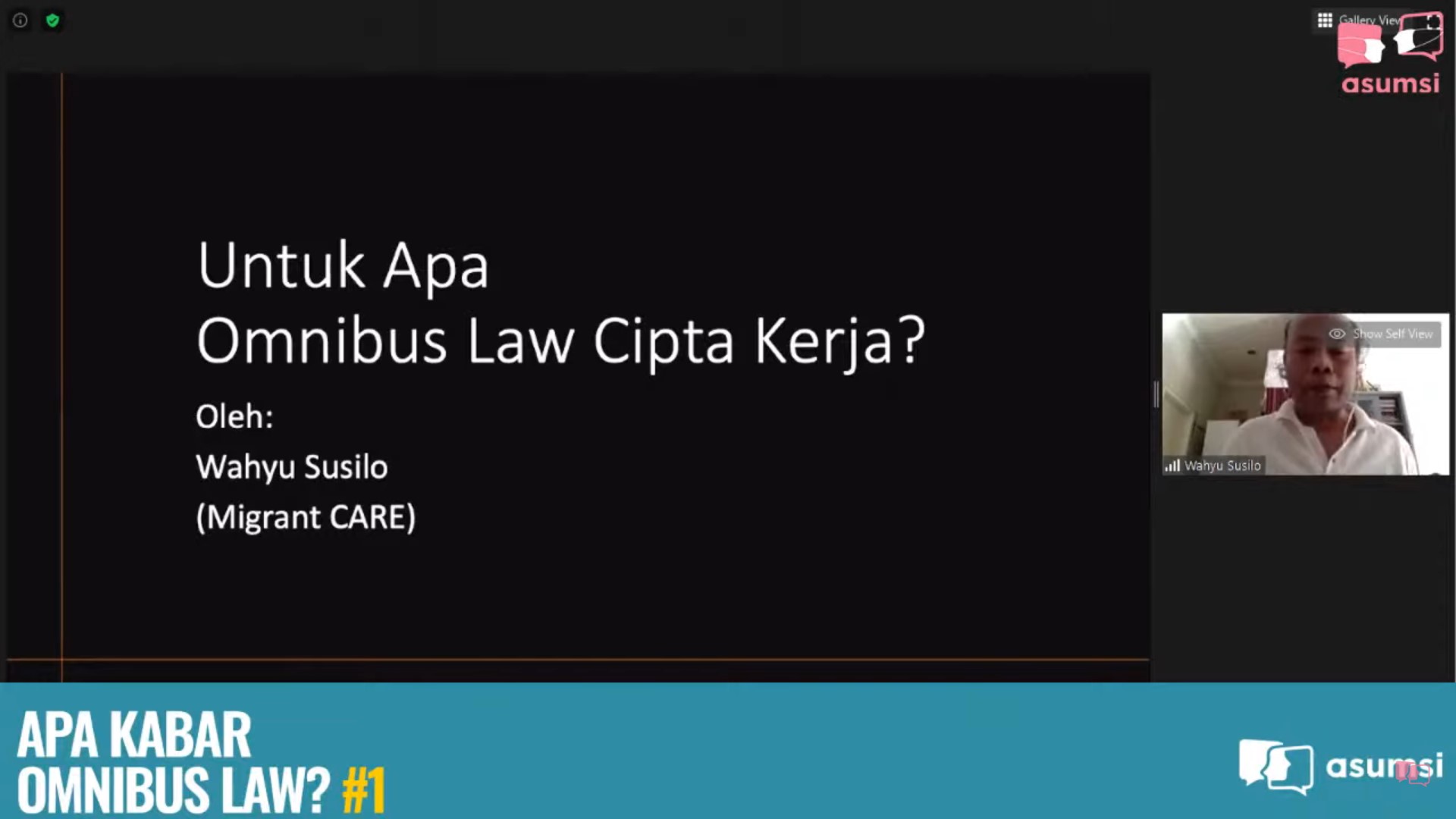Event
MAMPU Webinar Discussing Women during Pandemic
2 November 2020Author: Amron Hamdi

COVID-19 pandemic has brought about serious social and economic impacts all across Indonesia, including on women and children. Women and children are proven to be even more vulnerable compared to others. The MAMPU Webinar Series entitled “Women and Pandemic” highlighted stories on the impacts of pandemic to women and their struggle in overcoming these impacts. The topic was raised and discussed in the webinar’s three sessions, namely on 16, 23, and 30 July 2020.
In her opening remark, Kate Shanahan, MAMPU Program Team Leader, expressed her hope that the webinar could serve as a medium for grassroots women and non-government organizations to share their perspectives and experiences regarding the pandemic. Through this platform, their experiences could be directly listened to by policy makers at
local and national levels. She further added, “During the pandemic, MAMPU and its partners continued our efforts in various interventions while taking into account the needs of women and other vulnerable groups through gender-perspective and inclusive approach. MAMPU Partners strengthened women group organizing in villages, built community’s resilience, and
engaged various stakeholders in addressing COVID-19.”
The first webinar was held on the topic of “Double Burden of Women Workers during Pandemic”, which highlighted how COVID-19 pandemic has brought significant impacts to jobs and income in sectors with high rate of women workers participation, such as service, SME, and informal sectors. Women working in informal sector, such as home workers, are some of the
most-affected. “511 TURC’s beneficiary women workers or 68.42% were hit by the impacts and lost their jobs. The situation is exacerbated by their illiteracy and limited access to gadget, which prevent them from accessing the ‘pre-employment card’, as registration to the services have to be done online,” explained Dede Rina, the Coordinator of Informal Workers Division, TURC (Trade Union Rights Center), a MAMPU Partner to improve decent work condition for homeworkers.
“To foster economic recovery among homeworkers, we carry out several activities such as sensitization on COVID-19 prevention, mapping of economic potentials, urban farming training, promoting cooperative as a leverage to the economy, and facilitating homeworkers in accessing government programs,” she added.
Furthermore, during the event they also discussed about several measures that the government has taken in areas where MAMPU Partners work to assist women from the grassroots. Etty Subiyarti, Village Chief of Rogojati, Wonosobo District, explained about her activities with DESBUMI group in her village. “Before the pandemic, the business groups run by DESBUMI, such as tailors, batik crafter, and culinary were doing fine. When the pandemic started to hit, however, these business almost shut down as customer orders plummeted. Fortunately, the tailor group received the Economic Safety Net (Jaring Pengaman Ekonomi/JPE) Program which enabled them to produce and sell face masks. We bought their products and distributed them to the community.”
The second webinar entitled “Optimization of Civil Society’s Roles in Social Protection & Essential Services for Vulnerable Group during Pandemic” featured Bappenas (National Development Planning Agency) representative, Mr. Maliki, Director of Poverty Handling and Social Welfare, and Ministry of Social Affairs, represented by Said Mirza Pahlevi, Head of Database and Information. In his presentation, Said Mirza argued about the importance of updating the Social Welfare Integrated Data (DTKS) to mitigate COVID-19’s impacts. DTKS improvement became critical in distributing social assistance, such as staple food and direct cash transfer particularly for vulnerable groups such as elderly and person with disability (PWD).
With regard to provision of services to vulnerable group, Nani Zulminarni, Director of Yayasan PEKKA, also a MAMPU Partner, highlighted the importance of community engagement in improving the DTKS currently implemented by the government. “There have been ongoing innovations by the community in improving the DTKS. In 94% of villages we surveyed, the village apparatus conducted data verification and validation in the village deliberation forum (Musdes), allowing them to fix the data. We also found that 32% of village apparatus said that they engaged poor women in the village deliberation to ensure that the voices of elderly women and PWDs could be heard.”
In the last webinar series held on 30 July 2020, entitled “COVID-19’s impacts on Handling Cases of Violence against Women”, Woro Srihastuti Sulistyaningrum, Director of Family, Women, Child, Youth and Sport, Bappenas, delivered an opening remark. Woro explained about the massive impacts of COVID-19 to women, and ongoing government’s responses to ensure that the country’s economy could still run amid the ‘New Normal’ situation. “The Government of Indonesia has been focusing on harmonizing different strategic elements in its National Mid-Term Development Plan (RPJMN) to decrease the overall cases of violence against women. The pandemic will change many aspects of our lives, including development policies which now have to be adaptive in responding to various challenges that the changes have brought.”
During the same occassion, Alimatul Qibtiyah from Komnas Perempuan presented the commission’s study results on the Dynamic Changes in Households during COVID-19. The study involved 2,285 respondents. “66% of the respondents reported that they had to endure bigger household chores, as the majority of such chores are undertaken by women. Our record shows that the most affected segment is women of age 31-40 group which earn less than IDR5 million, and work in informal sector.”
Woro concluded the webinar discussion by emphasizing the importance of multi-stakeholders collaboration to curb the rate of violence, since the government cannot address the problem alone. “We can collaborate with the national government, local governments, NGOs, and academics to prevent and address violence against women. Data serve as our basis to take actions, and thus data strengthening is crucial”, she concluded.




